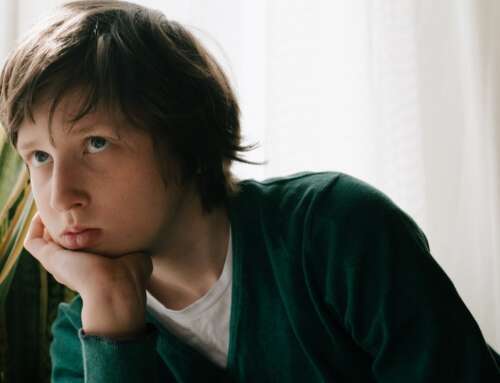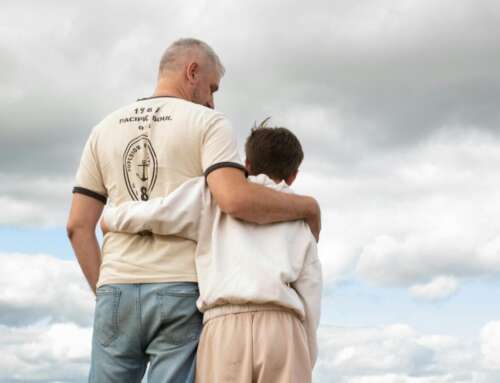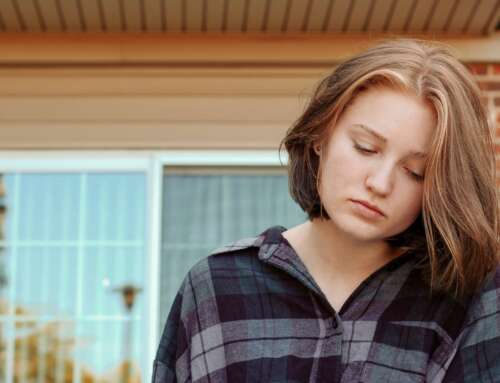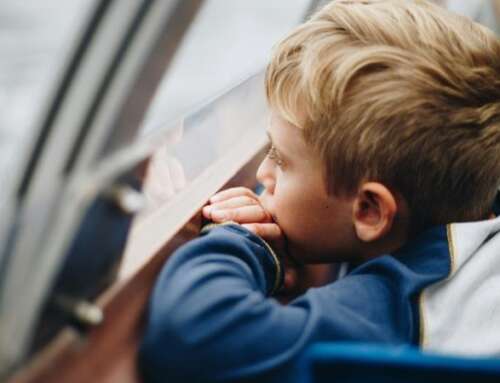 With recent focus on emotional intelligence, it seems now is the perfect time to analyse whether we are doing enough in classrooms to support our children through the process of grief recovery. As an educator, I believe our Early Childhood, Primary and Secondary Institutions should be implementing (PGR) Proactive Grief Recover – addressing grief related issues on a regular basis – not just when our children are finding it difficult to cope. I believe PGR should be an integral component of our curriculums, assisting our children in developing knowledge, skills and attitudes needed for moving beyond grief.
With recent focus on emotional intelligence, it seems now is the perfect time to analyse whether we are doing enough in classrooms to support our children through the process of grief recovery. As an educator, I believe our Early Childhood, Primary and Secondary Institutions should be implementing (PGR) Proactive Grief Recover – addressing grief related issues on a regular basis – not just when our children are finding it difficult to cope. I believe PGR should be an integral component of our curriculums, assisting our children in developing knowledge, skills and attitudes needed for moving beyond grief.
Take a closer look –
A closer look at our home lives. Children with circumstances many of us never knew in our own youth. Look at the boiling pot of pressure that our children face regularly. Acknowledge the grief known to children of separated families, victims of domestic violence, exposure to a list of drugs and harmful substances, peer pressure, technological boom and expectation to keep up. Throw in a generation of self – harming fads, eating disorders, medications, depression in varying degrees. Chuck in heaps of social expectations; peer pressure for our youth to try and test almost everything that could potentially destroy all that is great about mind, body and soul. While we’re at it, add social pressure to fit in, to be cool, to follow, to look good, act right, keep smiling and keep going. With bullying now morphed into cyber bullying, separation now the ‘norm’, no such thing as a ‘normal family unit… wow, our children don’t have much pressure on them do they? And yet how many times does society encourage us to just keep going… not to acknowledge what’s really happening in our lives – or at least not on a significant level.
Take a closer look –
A closer look at our classroom. Educators under pressure with curriculum guidelines to fulfill, full classrooms, ever increasing range of special needs and behavioural issues. All amounting to high pressure environments. Yet, mostly our teachers do an amazing job.
So why is it that with all these social, emotional and physical challenges our children face and our knowledge of the negative impact these challenges have beyond childhood into adult lives . . . . . . .
why is it that our education systems do not incorporate ‘pro active grief recovery?’
Note some of the leading circumstances which cause grief for our children, teenagers and families – separation, divorce, death, foster care, illness, bullying, eating disorders, depression, parental unemployment, relocation – and the list goes on.
Whether we choose to believe it or not, our kids are growing up in a society that tells us ‘You’ll be ok, keep going, stay strong, don’t cry…” All the while, their parents, with good intention, are overworked, stressed, balancing work and parenthood. Often these parents are finding it difficult to deal with life themselves, let alone support their children I the process. Our Education System should be supporting children through grief during school, to help prevent the fall of those who are not supported at home.
Do our children really have a chance at developing emotional intelligence, of being articulate, expressive, communicative and compassionate? Are we providing them with the best chance of having the skills necessary to manage their own grief when life throws them a curveball?
Well, yes, our education systems now recognise the need to address personal and social capabilities, as per our curriculum and the Declaration on Educational Goals for Young Australians, but is it enough? Perhaps we need to be more specific in addressing the real issues instead of letting our children attempt to struggle through their emotional turmoil, thinking they must do this on their own?
As an educator, and a Mother of 4, I understand the pressures and expectations of our teachers. I see that they have busy classrooms and challenging children. I understand that grief must be addressed in an age appropriate manner, with safety as priority and yes, I know there is a fear of disclosure. I do not see however, why our education systems are not implementing ‘proactive grief recovery’ (PGR) on a regular basis.
Of course, safety is always paramount and guidelines must be followed, but ‘PGR’ has a place in Australian Education. It reminds our children that they have a voice, they have rights, and are valued and understood. It gives them the knowledge and skills needed to effectively manage and work through grief should they ever need to. PGR builds compassion for circumstance of others and comradeship in our classrooms. There’s nothing wrong with letting our children know that they don’t always have to be strong, brave and quiet. That they don’t have to hold the attitude “You’ll be ok, keep going, stay strong, don’t cry…” There’s nothing wrong with discussing difficult topics in classroom environments, instead of only ever passing our children to Chaplains, Social Workers and Other. Don’t get me wrong, the professionals working with our kids do an awesome job. I just believe that we can do even better if we address these issues in classrooms as well.
If all of our Early Childhood, Primary and Secondary educators spent just 10 minutes per day, discussing some of the most relevant, commonplace grief related circumstances, in a positive, age appropriate, proactive way, would we not then be providing our children with the best possible chance of developing the knowledge, skills and emotional intelligence required to move through and beyond grief?
It is the duty of our educators to strengthen the links between what happens at home and our education systems. We need to let our children know that they are heard, supported and understood at school, not just in the chaplain’s office, but in our classrooms. Remind our children that they are important and valued and that we do care what happens in their lives out of school; that school and home are not isolated environments.
It’s interesting that our society spends so much time and money fixing those that have fallen. Instead, lets build our children up before they break, so that perhaps if and when they are faced with grief, we can lessen the fall – just a little.
So, what can we do? Well, it’s not rocket science… just talk, read, share, engage, support and afford our kids a little more of our time to discuss what really matters. Don’t know where to start? Too afraid to talk about it? Less of the worry, more of the action. If you don’t take the time, then maybe you’ll never know just how much you could have helped that child. Give our children back their sense of pride, self worth, dignity and hope – just by letting them know that you care and that its ok to talk about it. Be present in a child’s grief!
So what do you think? Does PGR have a place in our education systems? Perhaps the question should be, what is the cost of not addressing PGR in our education systems? It takes one person, one moment – to make a real difference in the life of a child. A lasting difference.
If you’re stuck for ideas, browse the following website to view a range of proactive grief recovery books and associated educational resources – published for children, teens, parents, families and professionals.
http://www.pureheartkidsbooks.com/
I’m dedicated to making a difference and hope that you’ll join me.
A huge thank you to Dr Ramesh Manocha for letting me share my perspective and my why.
Niki Burton: B/Teach B/Social Science – Author: pure heart kids books.







Leave A Comment